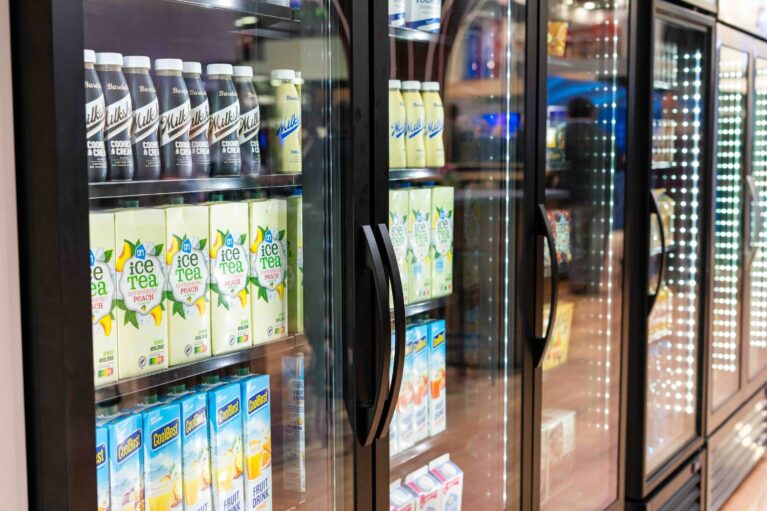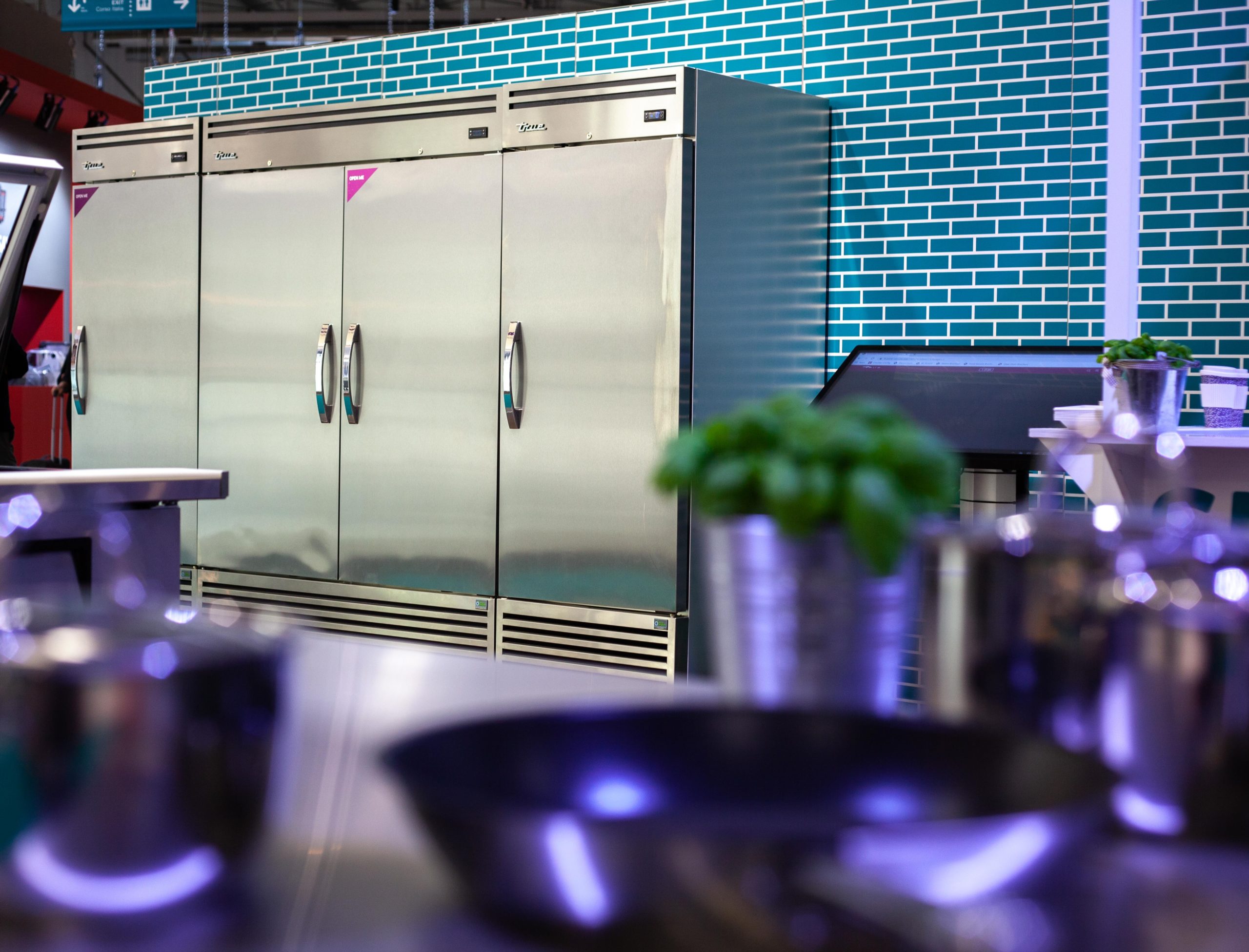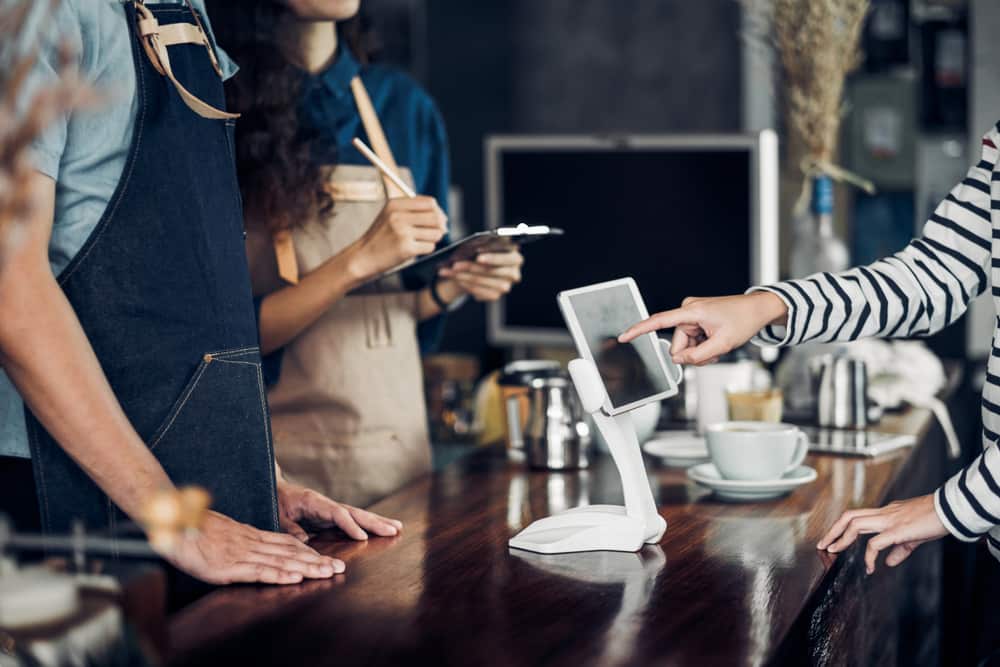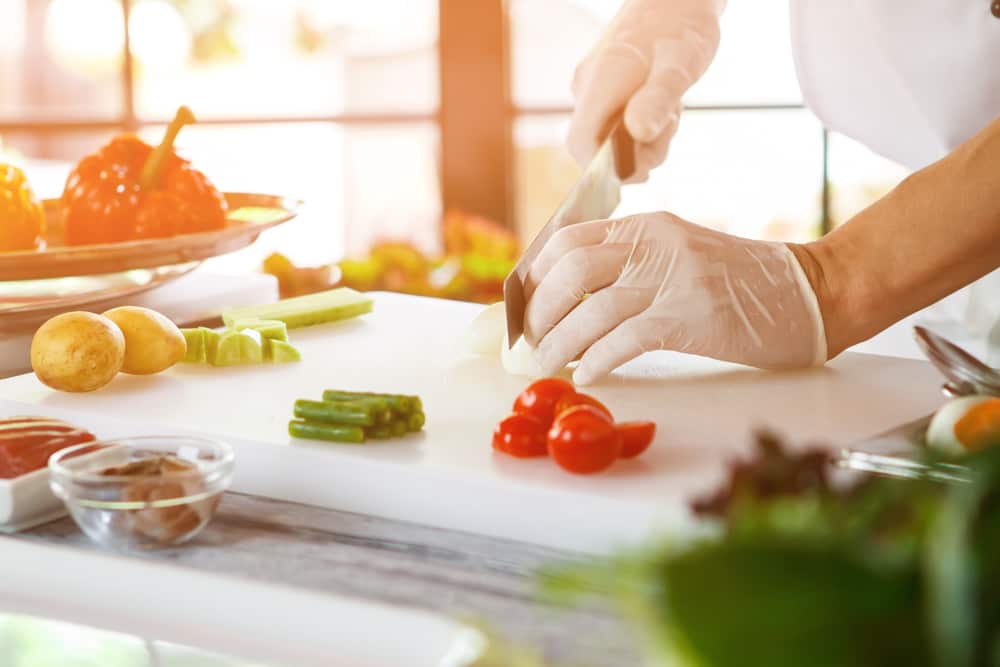5 Myths About Glass Door Refrigeration


Keeping all workers in the food production and supply chains healthy and safe is critical to both physical and business survival.
Before the Coronavirus pandemic began, food and restaurant industries across Europe would all have had Food Safety Management Systems already in place, underpinned by good hygiene and cleaning practices.
However, the World Health Organisation has issued new advice to help the hospitality industry comply with measures introduced to protect food workers from contracting COVID-19, to prevent exposure to or transmission of the virus, and to strengthen food hygiene and sanitation practices.
Here are some of the main points to consider as you plan to return to work…
Businesses should strive to improve personal hygiene measures and provide refresher training on food hygiene principles to eliminate or reduce the risk of food surfaces and food packaging materials becoming contaminated with the virus.
Ideally, these sessions should take place before business resumes, so workers have enough time to familiarize themselves with new processes.
Staff working in food premises should also be provided with written instructions and training on how to prevent the spread of Coronavirus.

Staff should receive refresher hygiene training.
Those working in the hospitality sector must be aware of the symptoms of Coronavirus and should stay home if they feel unwell.
Going forward, operators need to produce written guidance for staff on reporting such symptoms and on exclusion from work policies. The principal issue is for staff to be able to recognize symptoms early so that they can seek appropriate medical care and testing and minimize the risk of infecting fellow workers and even customers.
A return to work policy for staff who have been infected and recovered from Coronavirus should be also in place.
Gloves may be used but must be changed frequently and hands must be washed between glove changes and when gloves are removed. Gloves must be changed after carrying out non-food related activities, such as opening/closing doors by hand, and emptying bins.
Staff should be aware that wearing gloves can allow bacteria to build up on the surface of the hands, so handwashing is extremely important when gloves are removed to avoid subsequent contamination of food.
Employers should strongly stress that disposable gloves should not be used as a substitute for handwashing. Coronavirus virus can contaminate disposable gloves in the same way it gets onto workers’ hands and care should be taken when removing gloves too.

Glove use should be monitored efficiently.
It is well known by now that physical distancing is especially important to help slow the spread of Coronavirus. This is achieved by minimizing contact between individuals.
All food businesses should follow physical distancing guidance as far as reasonably possible. WHO state staff are to maintain at least 1 meter (3 feet) distance between fellow workers.
Where the food production environment makes it difficult to do so, employers need to consider what measures to put in place to protect employees.
Options could include staggering workstations, providing PPE equipment, limit the number of staff in one area, organize staff into working groups or teams to facilitate reduced interaction between groups.
Businesses should also pay close attention to the way they clean their premises. Here are a few tips:
Clean and disinfect food areas and equipment between different tasks, especially after handling raw food.
Clean as you go. If you spill some food, clear it up straight away and clean the surface thoroughly.
Use cleaning and disinfection products that are suitable for the job and follow the manufacturer’s instructions.
Do not let food waste build-up. Dispose of food waste suitably.
Use a cleaning schedule to make sure that surfaces and equipment are cleaned when they need to be. It can also help to stop cleaning products being wasted or used incorrectly.
For True’s guidance on refrigeration cleaning, see here.
If you’re looking for more ways of keeping your staff, customers, and premises safe, True is always here to help.
From industry advice, product support, and units and spares, we’re here for you.
Stay safe, take care.
Team True.